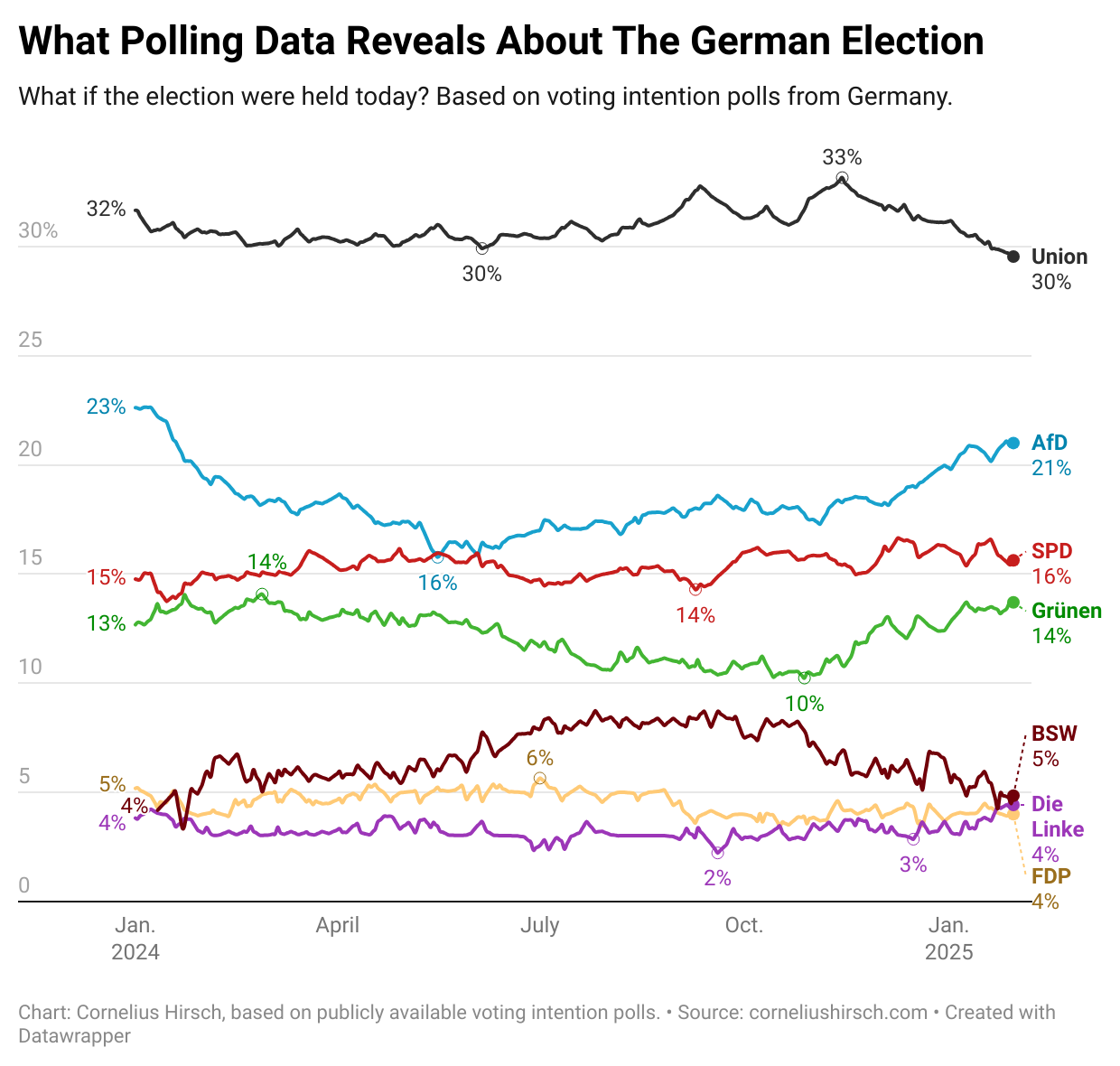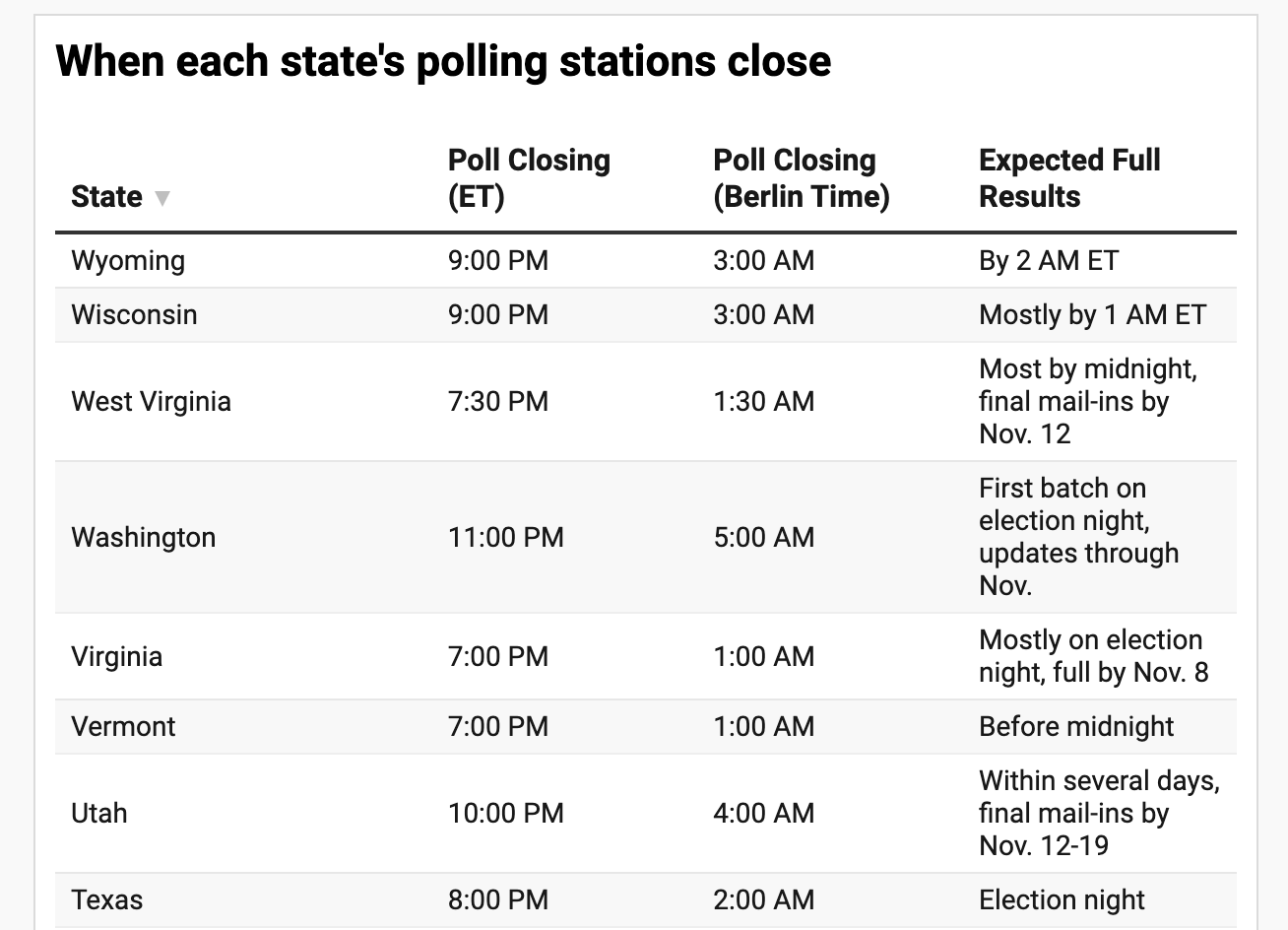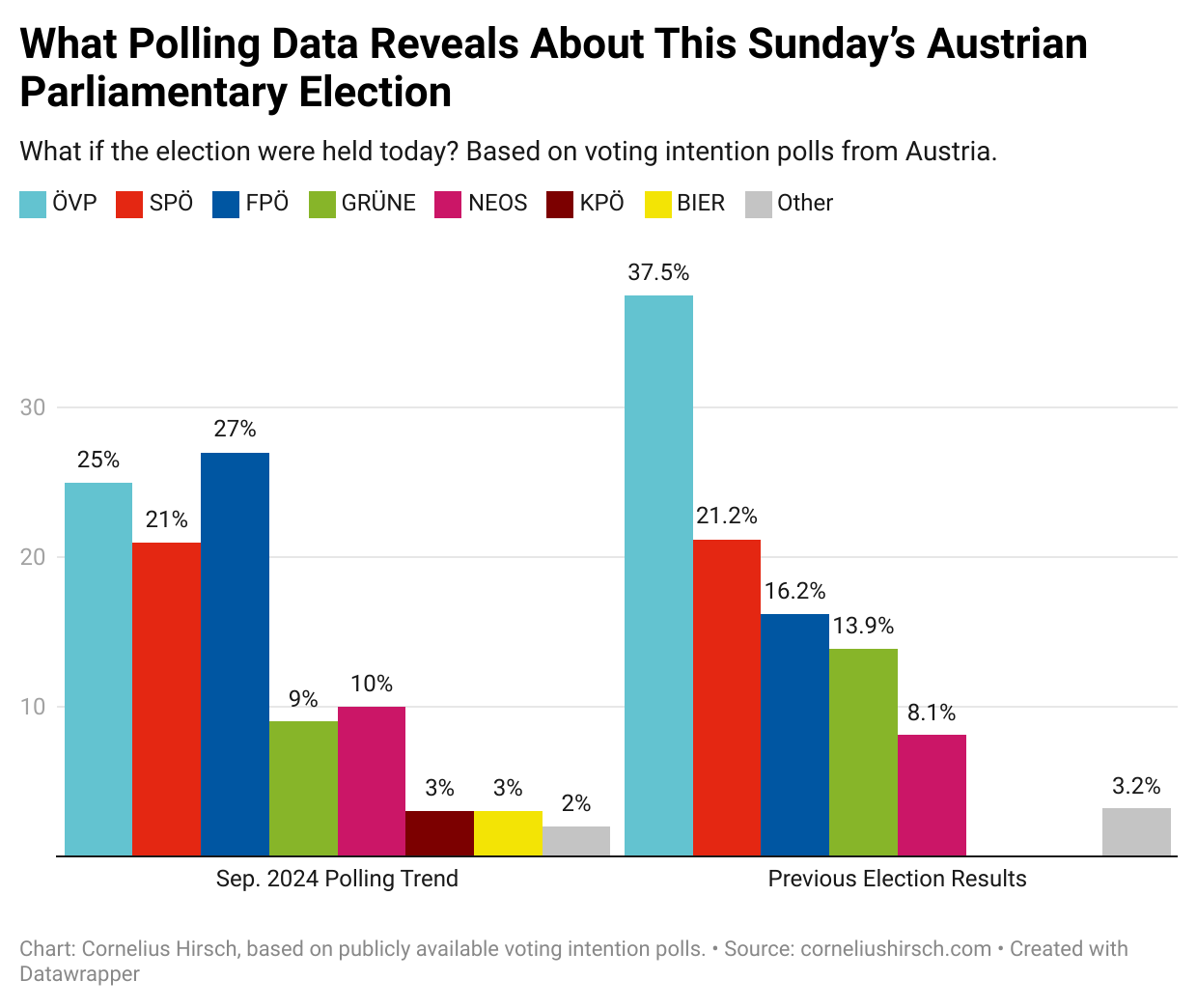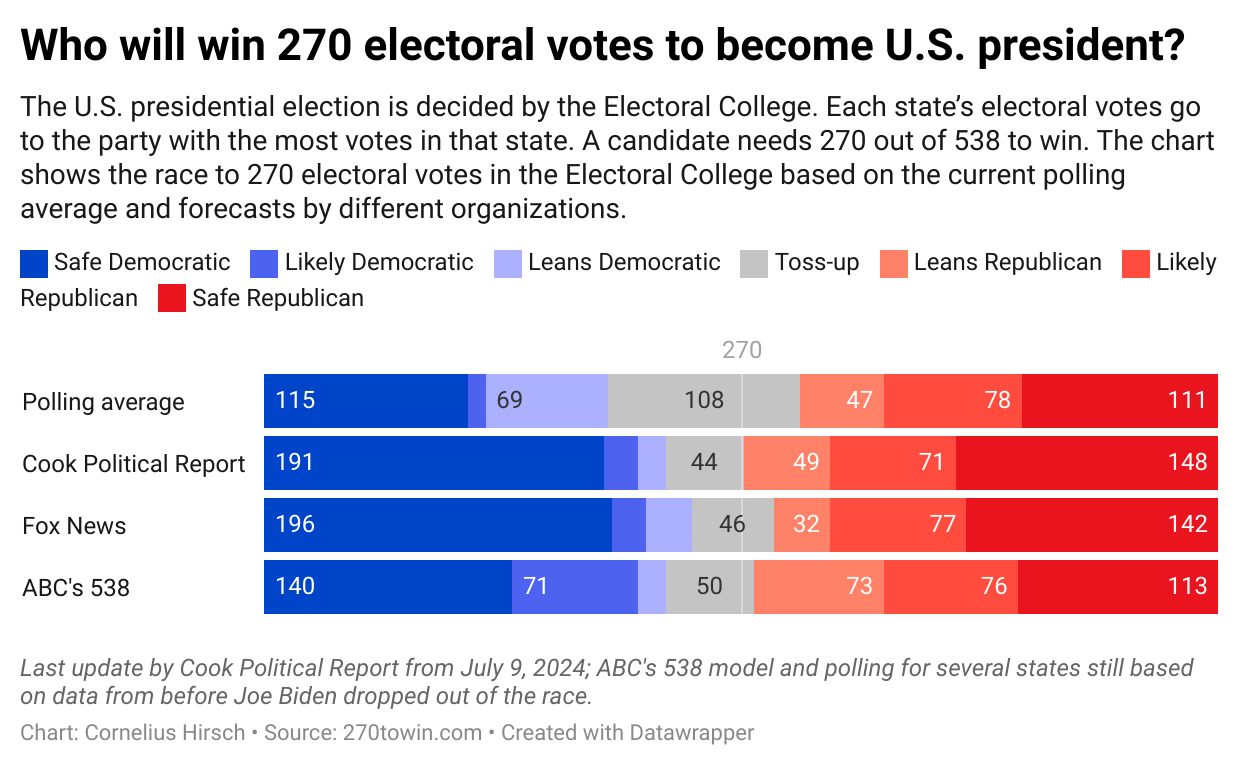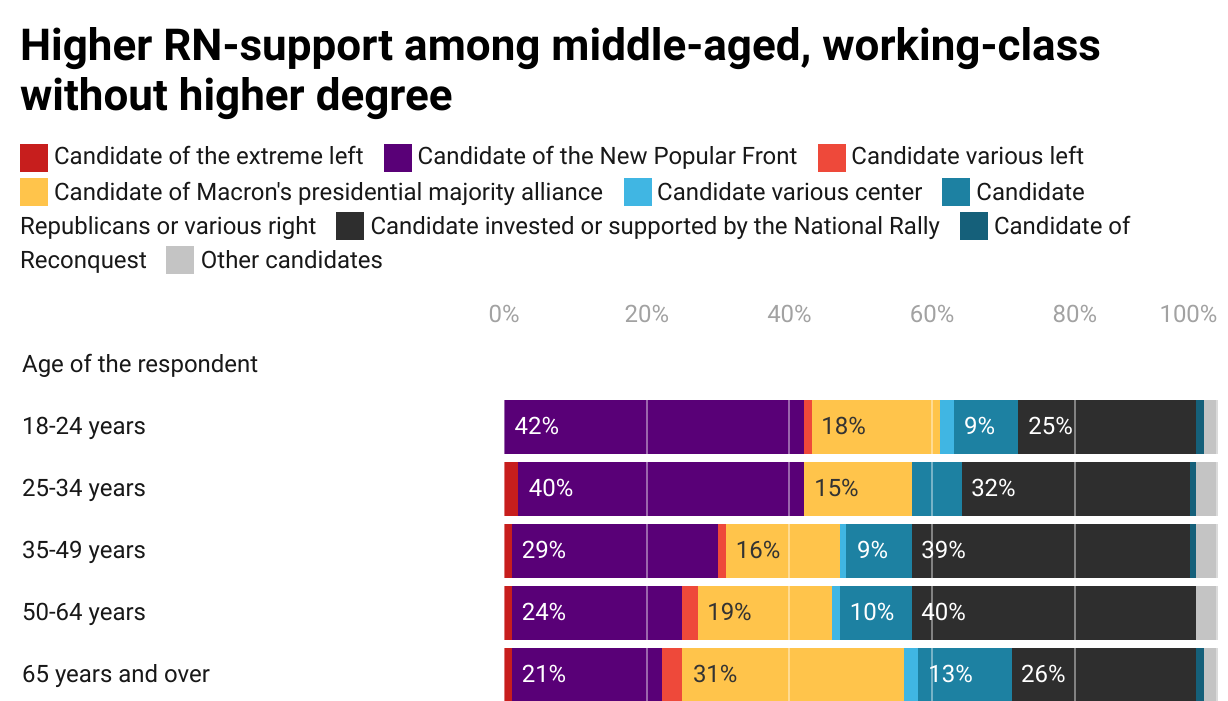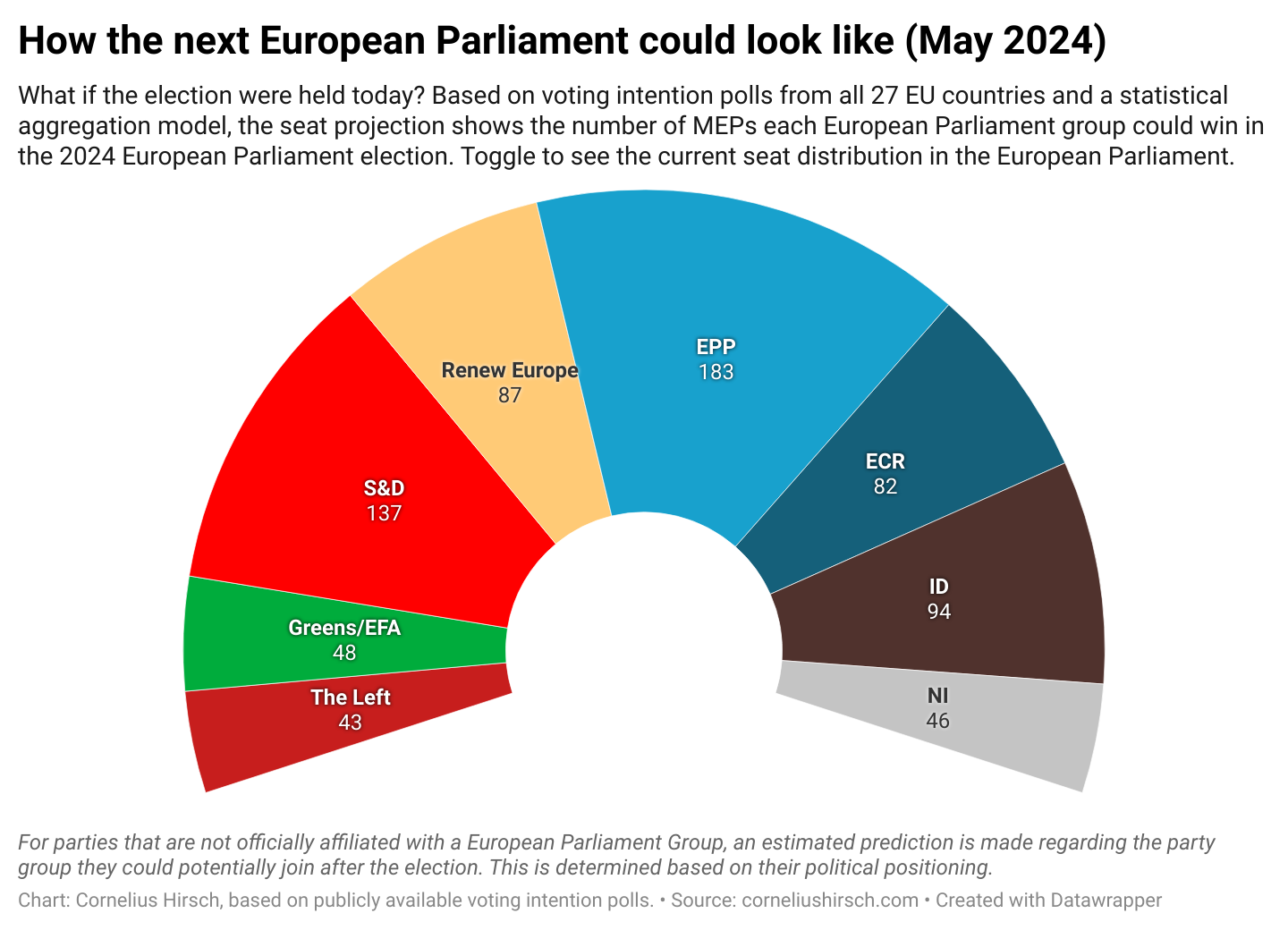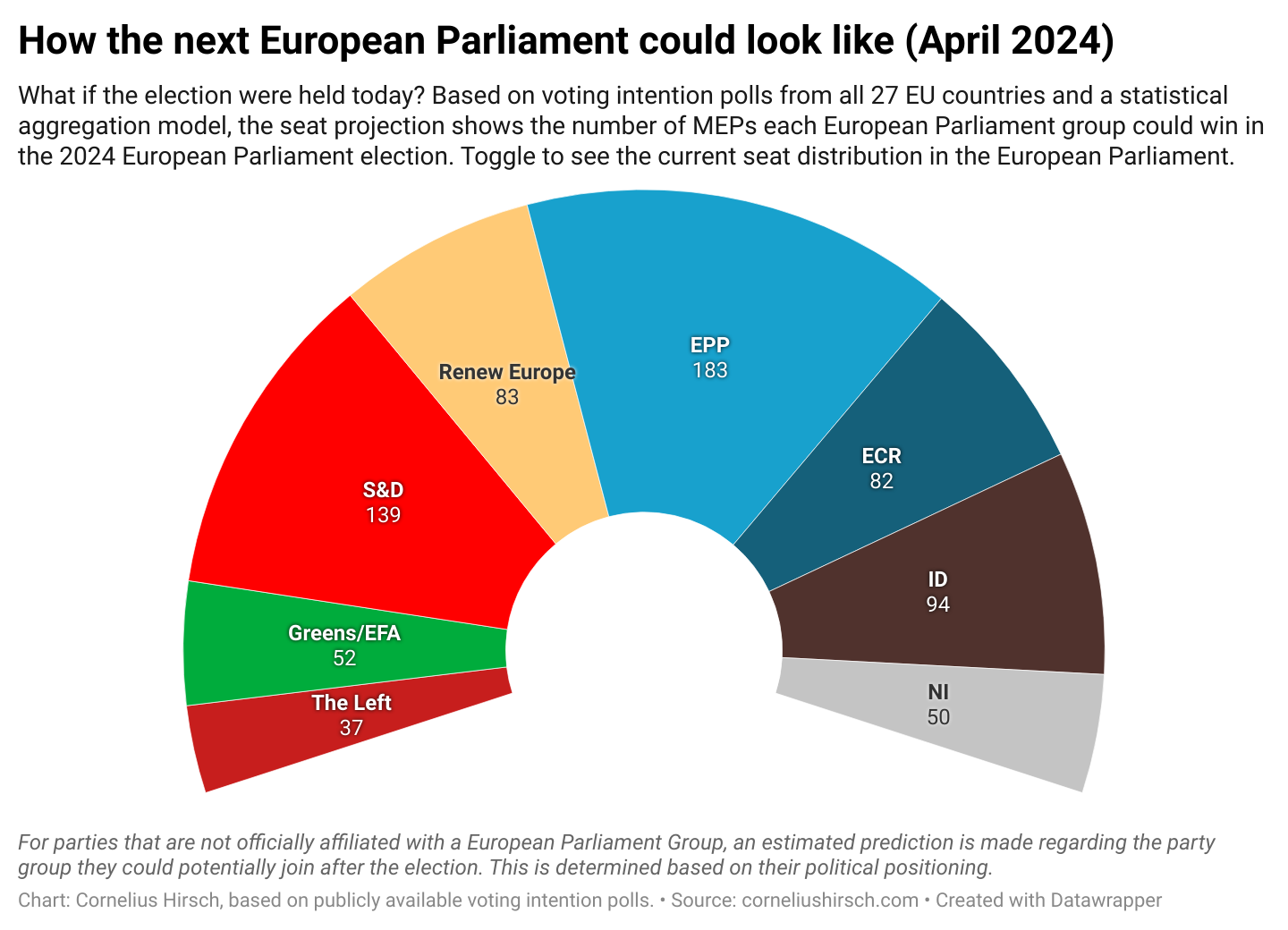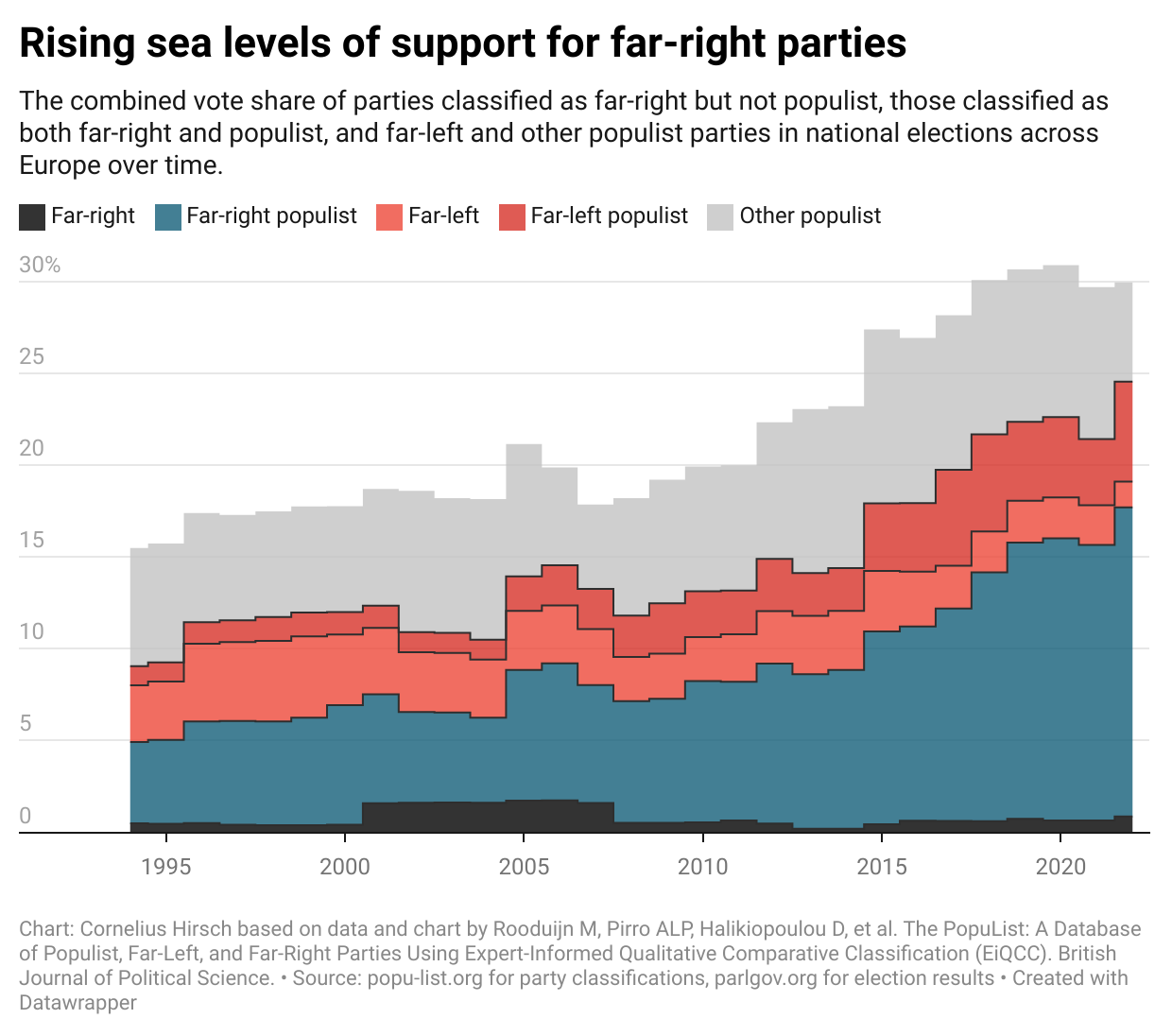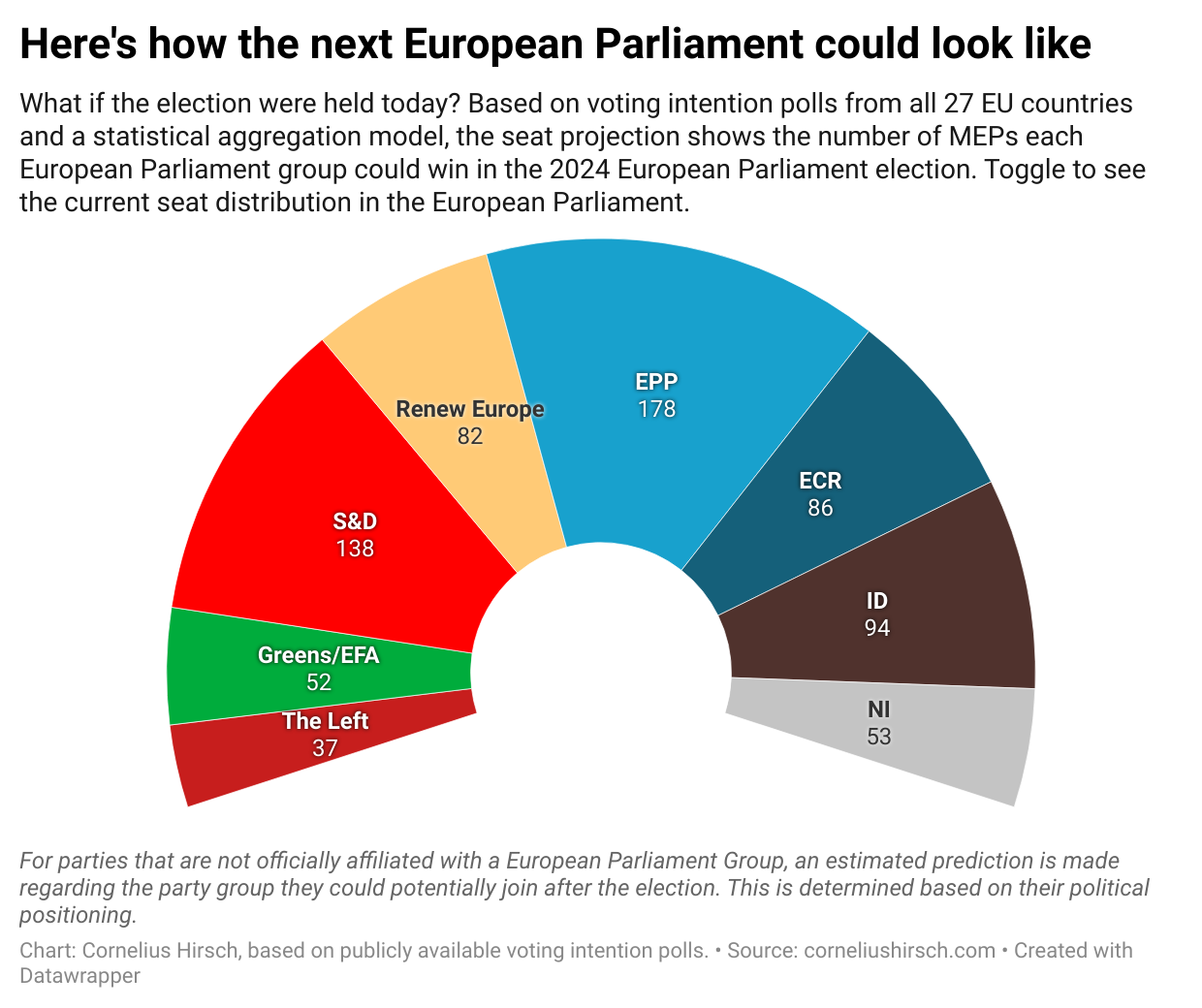Below you can find the latest results of my 2024 European Parliament election seat projection — based on voting intention polls and political insights.
Last update: 9 May 2024
The hemicycle chart above displays the aggregated number of seats each European Parliament group could fill with their Members of the European Parliament (MEPs). However, the European Parliament election is determined through 27 national-level elections in each member country of the European Union. In the table at the bottom of the page, you can find information on the individual political parties running in each EU country. It also provides the European Parliament group they are associated with, and the number of seats they can expect to win.
Majority Math: EU Parliament Coalition Configurations
Historically, in the European Parliament, the so-called grand coalition of the center with the EPP, S&D, and Renew Europe, have worked together. Together the three parties can expect to hold on to their majority of seats after the June election.
The doughnut charts show the various possible and impossible combinations of European Parliament groups and their respective share of seats in the European Parliament. This is again based on the current seat estimate.
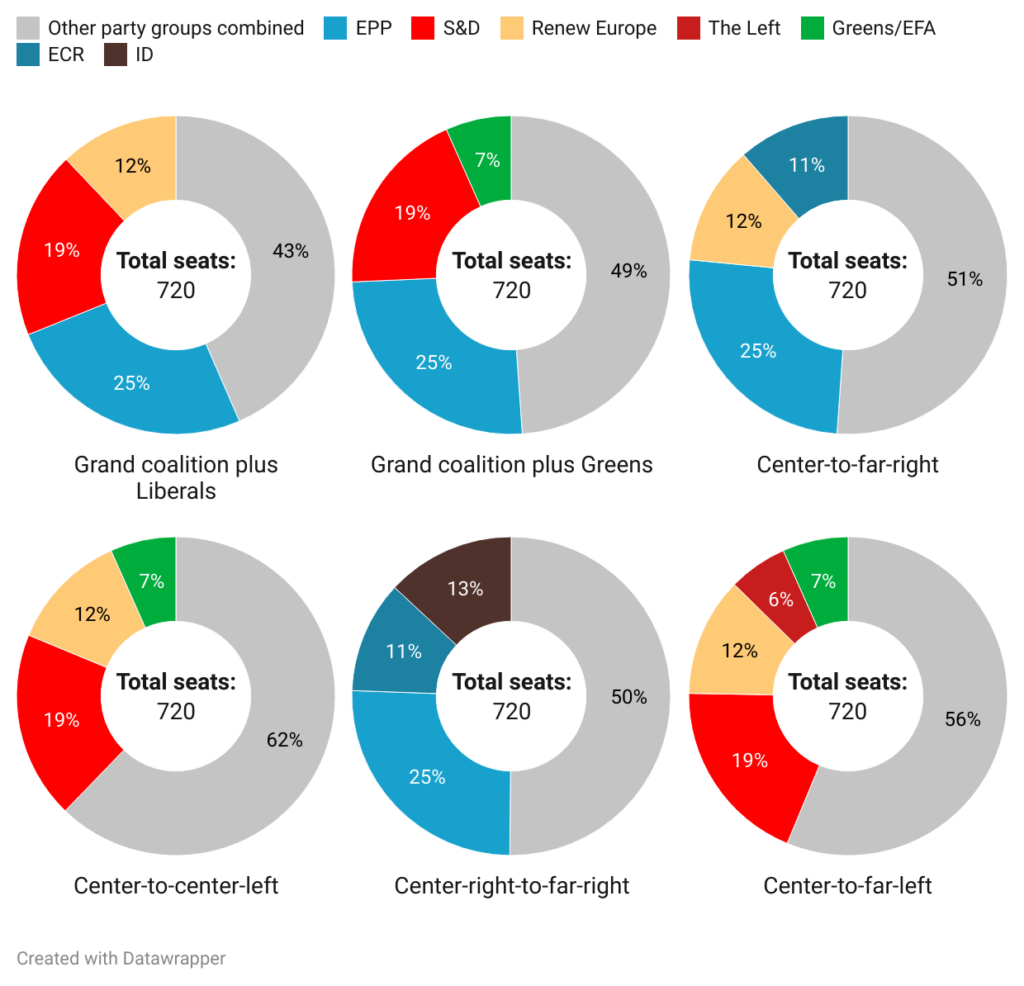
Driving The Change
Which countries drive the gains and losses for the different European Parliament groups? In the chart below, the seat estimates are summarized by country and party group to highlight the most significant political shifts across the 27 EU countries.
Find out how to vote on this official website by the European Union. Read the latest blog post about the 2024 European Parliament election seat projection.
What are European Parliament elections?
European Union citizens actively engage in the democratic process by electing Members of the European Parliament every five years. During these elections, citizens from EU countries directly choose their representatives as MEPs, making the European Parliament the world’s sole transnational assembly directly elected by its populace. With over 700 MEPs elected every five years, individuals play a crucial role in shaping the political landscape of Europe. Once elected, MEPs align with political groups sharing similar ideologies, advocating for the concerns of EU citizens on the European stage. EU citizens possess the right to both vote and run for office in their respective country or the EU nation they reside in. Through voting, citizens influence decisions on critical matters such as the economy, energy, climate, and Europe’s global position, amplifying their voices, contributing to selecting the forthcoming European Parliament, and determining their own future.
